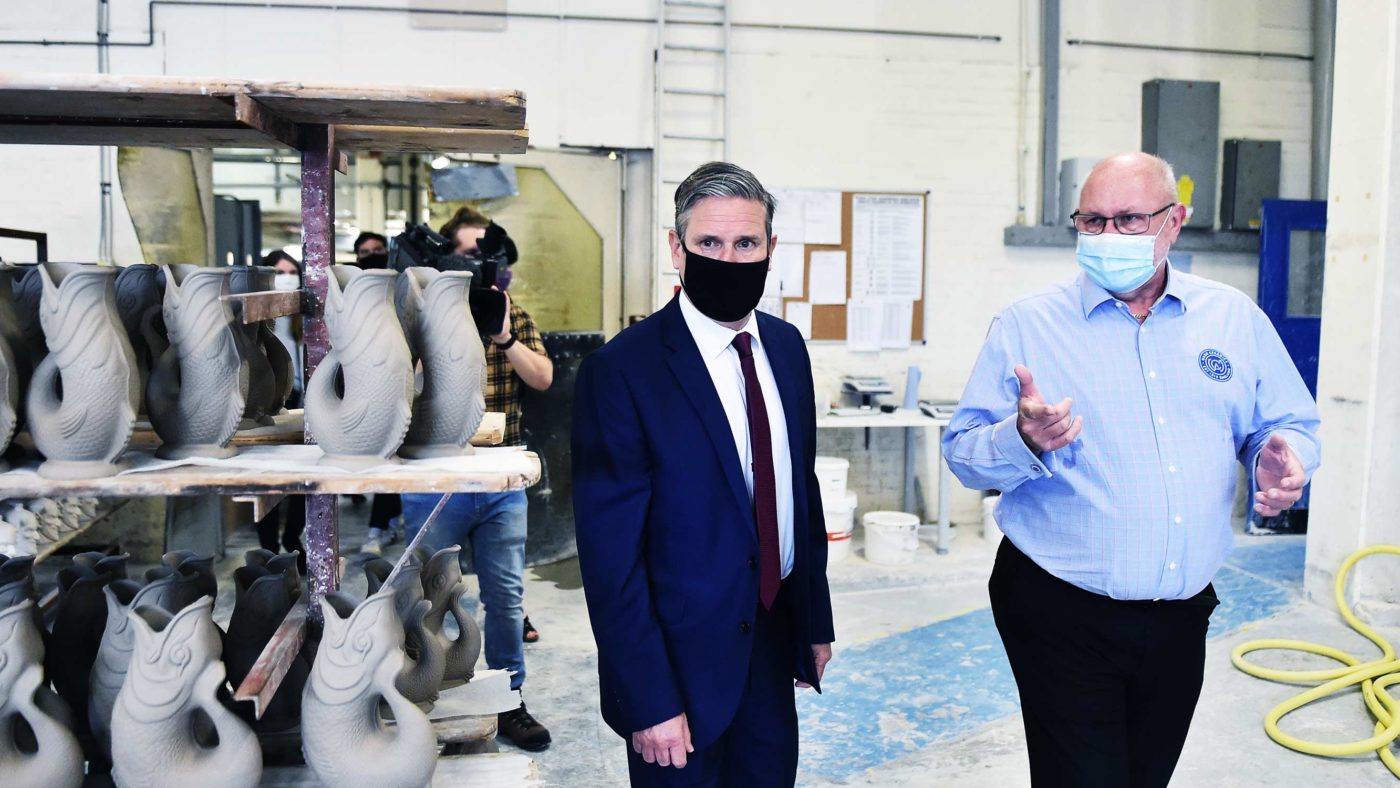Is there no end to the Labour Party’s economic illiteracy?
After claiming that free markets have ‘failed’ and extolling the protectionist virtues of ‘Buy British’, Keir Starmer’s latest wheeze is to tell us that British manufacturing is in urgent need of a revival.
What’s particularly odd about this is there has not actually been any great decline in manufacturing in this country. According to the Office for National Statistics manufacturing output is perhaps 4% off its all-time peak. Indeed, it’s about double what it was in 1968, about double what it was in 1980 and perhaps 15% above where it was as recently as 2009. Perhaps we might want manufacturing output to be even higher, but the evidence of a collapse simply isn’t there, at all.
What’s really got Starmer’s goat, though, is the ‘shocking’ fact that manufacturing jobs have fallen by 93,000 since the Tories came to power in 2010.
This is a classic bit of economic wrongthink. Jobs are not a benefit of economic activity, but a cost. Wages do appear in the debit side of a company’s books after all, they’re a cost.
Or we can look at this from a ‘whole economy’ point of view. However large it may be we do have a limit on the amount of human labour available to us to produce everything we want. So, there’s always an opportunity cost to the production of anything – crudely put, employing someone to do one thing means they can’t do another thing.
The fact the British manufacturing sector can maintain or increase output with fewer jobs is not a sign of decline, but progress. After all, it’s not as though anyone is saying that the tractor or the combine harvester are bad things because there are fewer workers toiling in the field to produce our food.
The corollary of fewer people working to produce the same output is, of course, that more people are available to do other things that we value, be it in the caring professions (and the NHS is notably short of staff), running libraries, producing ballet and all the other myriad things that make up a civilisation.
Given that we’re forever being told that the UK is a low wage, low productivity economy, the fact that each unit of labour in manufacturing has become more productive ought to be welcomed. It follows that Labour’s call to ‘revive manufacturing’ is really a call to reverse productivity rises and make us poorer. That’s all that employment for the sake of employment is.
What’s particularly silly about Labour’s reasoning is Starmer’s claim that manufacturing in decline ‘because of low investment and cuts to skills budgets’.
This gets things entirely the wrong way round. Both of the things Starmer is calling for would actually reduce the amount of workers neeedd. More investment means more machinery to replace the human labour. More skilled labour means we require less of it – because a more skilled workforce means more production for any particular hour of work done.
Sadly, this kind of uneconomic thinking is par for the course among our political class. The Green Party campaigned for years on the idea that solar power was preferable to nuclear precisely because there were more jobs in renewables per TWh of power produced. In doing so they produced a quite epic inversion of the correct calculation, that the increased human labour requirement is a cost of renewables, not a benefit.
They were in illustrious company too. Over in the States, President Obama boasted that his administration would produce a green energy revolution ‘full of jobs’ – what he didn’t mention is that those jobs would cost the American taxpayer an arm and a leg. Again, just ask yourself – would you prefer energy that require thousands of workers to produce, or a source that requires minimal human input?
Some advice for the Labour Party. If your suggestions for economic policy could be found in a Green Party manifesto, you’ve taken a wrong turn somewhere. You can campaign to increase manufacturing output if you like, but campaigning to make us poorer by increasing costs in the sector just isn’t wise.
Click here to subscribe to our daily briefing – the best pieces from CapX and across the web.
CapX depends on the generosity of its readers. If you value what we do, please consider making a donation.


